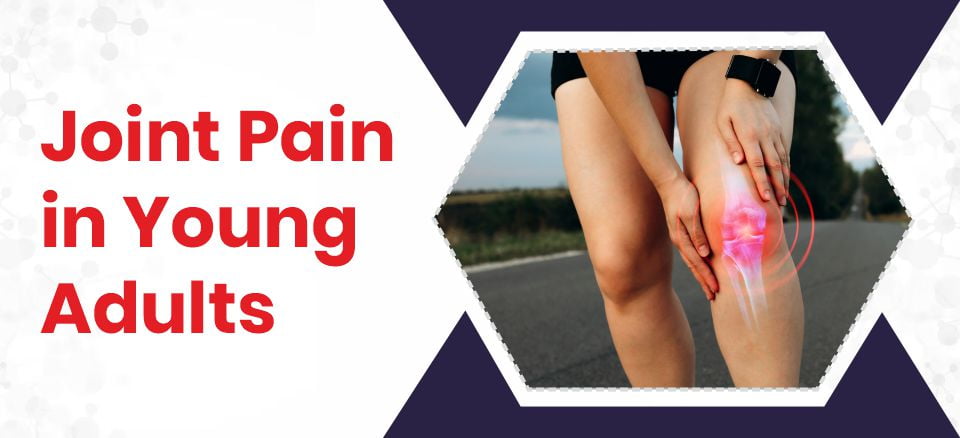Joint pain, often associated with older adults, is increasingly affecting younger individuals. Recent observations reveal a worrying trend where individuals in their late twenties to early fifties are experiencing joint pain at higher rates. This article delves into the reasons behind this rise in joint pain among younger people and offers practical tips for managing and alleviating the discomfort.
Increasing Incidence of Joint Pain in Younger Adults
While joint pain has traditionally been linked to aging, recent reports indicate a significant rise in cases among younger populations. Medical professionals have noted that many individuals aged between 25 and 50 years are now seeking treatment for joint-related issues. For instance, experts have reported seeing around four to five patients each month in the 35 to 50 age bracket with joint pain. Additionally, recent data shows that within the last few months, there have been approximately thirty new cases of joint pain among individuals aged 25 to 40, with a higher prevalence in women compared to men.
Common Causes of Joint Pain in Young Adults
Several factors contribute to joint pain in younger adults, many of which are related to lifestyle and health conditions. The main causes include:
- Osteoarthritis: This condition occurs when the cartilage that cushions the joints breaks down, leading to pain and stiffness. It is often a result of wear and tear on the joints over time.
- Rheumatoid Arthritis: This autoimmune disorder leads to joint inflammation and pain, often affecting the fingers and wrists, and can cause joint deformities.
- Gout: This type of arthritis is characterized by sudden and severe pain, often starting in the big toe, caused by the accumulation of uric acid crystals in the joints.
- Bursitis: Inflammation of the bursa, a fluid-filled sac that reduces friction in the joints, can lead to joint pain.
- Tendinitis: Inflammation of the tendons due to repetitive stress or overuse can cause joint discomfort.
- Injuries: Past injuries, such as fractures or sprains, can lead to chronic joint pain.
- Vitamin Deficiencies: Insufficient levels of Vitamin D3 and Vitamin B12 are increasingly linked to joint pain among the younger demographic.
- Overweight and Obesity: Excess body weight puts additional stress on the joints, particularly those in the lower body such as the knees and hips.
- Stress and Mental Health: Conditions like depression and anxiety can also manifest as physical symptoms, including joint pain.
Managing and Relieving Joint Pain
To alleviate joint pain and manage symptoms effectively, consider the following strategies:
- Exercise Regularly: Engage in low-impact exercises to strengthen the muscles around the joints and maintain joint flexibility. Activities like swimming, cycling, and walking are beneficial.
- Maintain a Healthy Diet: A well-balanced diet rich in fruits, vegetables, and lean proteins supports joint health. Avoid high-calorie, junk, and processed foods to manage weight and reduce joint strain.
- Hot and Cold Therapy: Applying heat or cold packs can help relieve joint pain. Heat helps relax and loosen tissues, while cold therapy reduces inflammation and numbness.
- Weight Management: Keeping a healthy weight is crucial for reducing stress on the joints. Focus on a diet low in calories and high in nutrients.
- Supplements: While supplements should only be used after consultation with a healthcare provider, certain vitamins and minerals might be recommended based on blood tests.
- Gentle Massage: A gentle massage can help reduce muscle tension and improve joint comfort.
Conclusion
The rising incidence of joint pain among young adults is a growing concern, often linked to lifestyle factors such as obesity, poor diet, and lack of exercise. Addressing these issues through a balanced diet, regular physical activity, and appropriate therapies can help manage and reduce joint pain.
Always consult with your doctor or a healthcare professional before making significant dietary changes for personalized advice based on your medical history and current health status.
Note: If you have any health-related concerns, please call us at +91-9058577992 to receive free consultation from our experienced doctors. Thank you.
